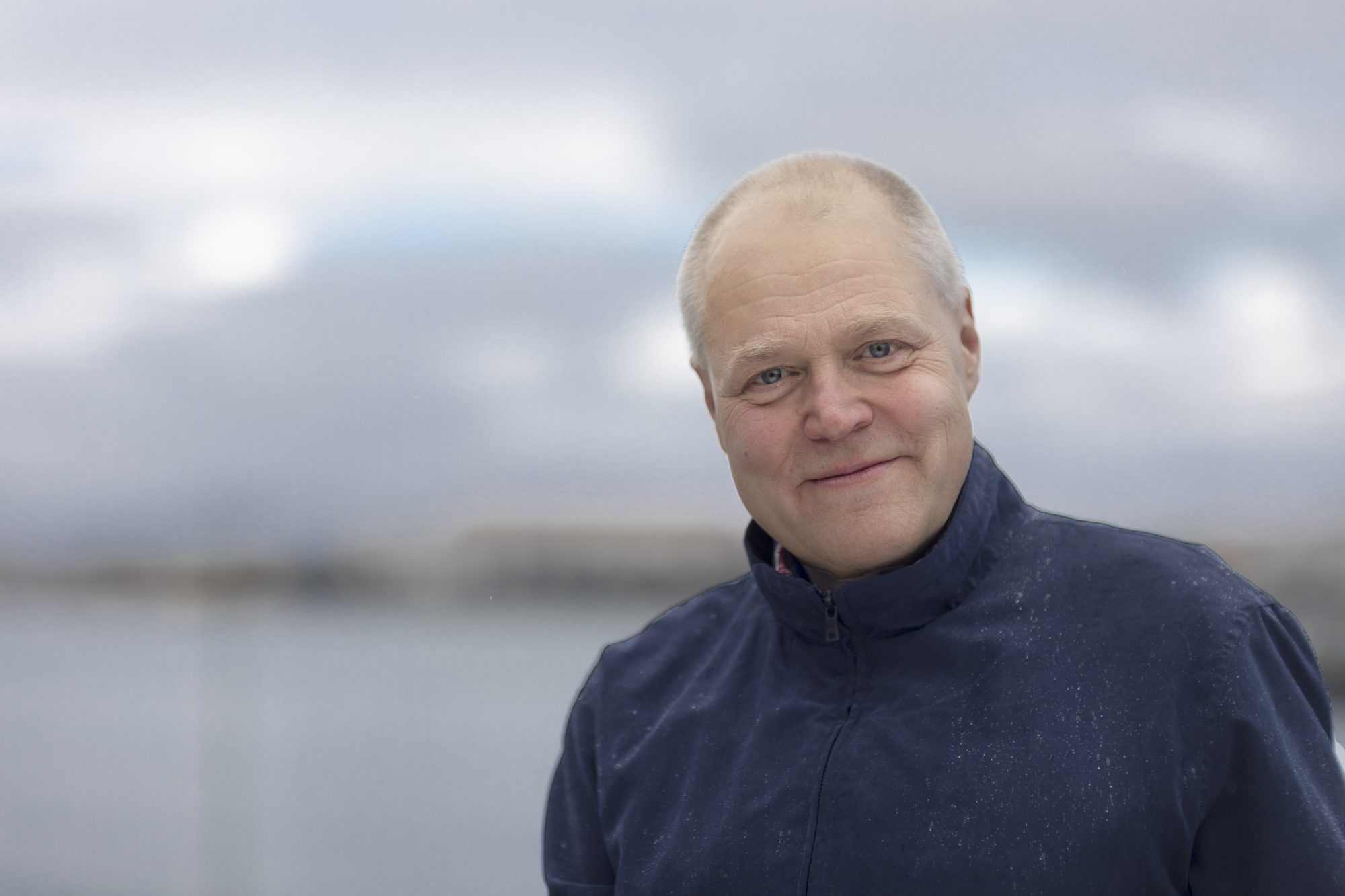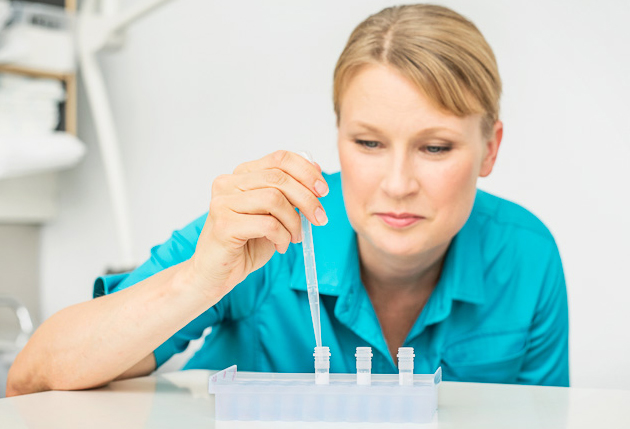Janos Uotila’s prostate cancer was treated in a private cancer hospital

The spring sun shines through the windows of the cancer hospital, reflecting the atmosphere of our meeting. – I’ve been through so much in my life that I went along with this process with a positive attitude, says Janos Uotila. Although the early days of his suspected disease and diagnosis of cancer were a bit complicated, he never felt desperate about his situation.
“I didn’t want to be a ticking time bomb”
Suspicions of prostate cancer arose during an annual routine inspection, where Janos has been visiting regularly for several years due to other matters concerning his health. The appointment last autumn revealed that his PSA level was dramatically elevated.
Before deciding on treatment at a private cancer hospital, Janos went through some tormenting months undergoing numerous studies and, some of the time, just waiting. – Examinations and tests were done one after the other and the results took a long time. I felt like most of the time I was just waiting. I was very frustrated, waiting and doing nothing in an uncertain situation was at times very difficult, says Janos, describing his thoughts from the early stages of his illness.
The first examinations showed that the prostate finding was small and, therefore, completely against the PSA analysis result. The tumor biopsy indicated that the cancer was not the most aggressive form of the disease. In this phase, a decision to monitor the situation was made. Surgery was considered to be too radical because of the negative side effects involved as the cancer appeared to be still largely non-aggressive on the basis of the biopsy findings. – It wasn’t a very uplifting treatment plan, I was like a ticking time bomb with my cancer diagnosis, says Uotila, describing his feelings and frustration after being diagnosed.
Careful diagnosis as a basis for treatment choices
Uotila ended up at a private cancer hospital after receiving recommendations from friends. – When I came home with the first treatment plan that emphasised monitoring, I thought there must be another way to beat this cancer, he recalls. When several of his close acquaintances mentioned Docrates to him, he made an appointment with Timo Joensuu, a Specialist in Medical Oncology and Radiotherapy. – When I came here, I understood the importance of accurate, personal diagnosis. After all, it is much easier to treat the illness when it is first clarified in detail what is being treated, says Janos. – Timo also said that if we just wait and see what will happen, the disease will spread with almost 100% certainty and that in only rare cases will the cancer become permanently encapsulated, he adds.
“Second opinion” lead to a new plan
The F18-PSMA PET-CT and the diverse 3T MRI scans carried out on Janos Uotila at Docrates revealed two active and separate cancer foci. – That discovery was from a completely different planet than the previously diagnosed disease, says Janos, praising the careful and accurate diagnosis. Apparently, the first biopsy only had sample cells from the second focus. – In order to treat prostate cancer effectively, it is important to get a reliable picture of the spreading of the cancer before creating a treatment plan, says Timo Joensuu about the importance of sensitive PET and MRI scans in the diagnosis phase. – With direct MRI guidance, we can take the biopsies robotically and the sample will definitely tell the true picture, he adds.
Janos is thankful that he himself was smart enough to question the original treatment plan. – In the end, how many people have the strength and understanding to get that second opinion? he wonders. – Or the understanding that the first option offered may not be the only and the best ‘take-it-or-leave-it’ treatment plan. Janos would like to have more honest discussion and a wider awareness of the different options available and their effects. – Fortunately, I can now spread this message through my own experience,he says.
“Am I falling apart now?”
The cancer diagnosis was an extension to Janos Uotila’s previous health problems. – Maybe that’s why I didn’t get so scared. Of course, I had to reassure my relatives and loved ones by saying let’s just get this over with. I understand the concerns of those close to me, cancer being such an evil word and such sad connotations being related to it. Janos says he has been very open about his illness. Nonetheless, he was surprised by the flood of messages that the video from the corridors of the radiotherapy unit he posted on social media received. – I got messages from near and far, and some were really worried, he recalls.
– I don’t get fazed easily, that’s how much my health has been tested in the past, he says. – Even then, I laughed at my wife, saying, ‘What’s next, am I falling apart now?’
You can’t get rid of cancer by eating
Everyone who has had cancer has their own way of dealing with it, and in this relationship, Janos has chosen an open policy. – I feel it’s important that I can share my situation with others and address the issue by talking to my loved ones. There’s no need to be ashamed of this. After all, no one can influence it, it’s not in your own hands if you get cancer or not, he says. – Surely everyone can try to live as healthy as possible and prevent their own illness, but you can’t prevent it by eating, he says.
The long drive and trick shot golf professional is used to an active lifestyle. Janos’ life with the illness has continued almost the same as before: entrepreneurship and family have kept him busy. – In addition to everything else, my wife and I also run a gym, which we do out of love for the sport, he describes. He is also busy with the three children of the family, the youngest of whom is just 2½ years old. – I have always spoken openly about difficult things with my older children. I never wanted to keep them in the dark. They can sense if something’s going on. This way, I have also wanted to teach them that the right attitude always helps to see the bright side of things, Janos says.
Staff’s approach builds confidence
Janos praises the cancer hospital’s holistic approach to cancer treatment and how each patient is considered an individual. – Fortunately, such a progressive place where patients are treated from head to toe while taking into account their own needs exists. A personal care team supports patients in all situations and both mental and physical well-being are invested in. Janos also praises the staff’s approach that helped build confidence. – No one is overly dramatic here and you can have peace of mind when you can trust your own care team, he says. – It also shows that when the staff are doing well, it is reflected directly in the patients.
His prostate cancer was originally typically insidious. The sooner the disease can be treated, the more likely it is that it can be eradicated at once without any harm involved. PSA analyses are recommended to be performed after treatment, as for all healthy men.
Janos has received radiotherapy for prostate cancer, both externally and as HDR brachytherapy, i.e. interstitial radiotherapy.
– The treatments have gone very well. It is just a pity that the duration of a radiotherapy session is so short that you can’t quite manage to fall asleep, says Uotila with a laugh. The radiotherapy sessions are already a routine for him, and fitting numerous treatments into the busy schedule of an entrepreneur has been easy. – All treatments are scheduled according to my diary. This is already a routine, a bit like visiting friends over a cup of coffee, says Uotila with a twinkle in his eye. – I always feel welcome here, he says with gratitude.
Jet skis waiting at the dock
In the early spring, Janos was already looking forward to the upcoming spring and summer. – When the treatments are over, we will go on a trip to Italy, he says of his plans for the near future. – And as soon as the ice melts, I’m also going on a jet ski trip. Janos is already looking optimistically to the future. – Everything has been so effortless that I believe that only positive feelings will remain of this process. One experience richer, I will continue my life at least as fully as before, and in two years’ time, I may not remember the disease at all, he concludes with a smile.












